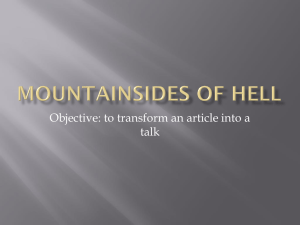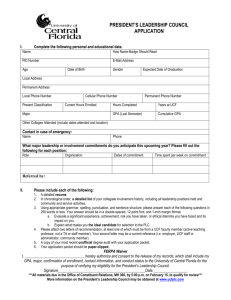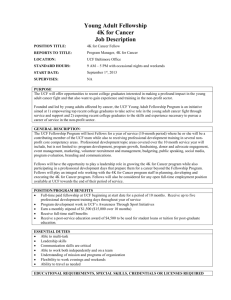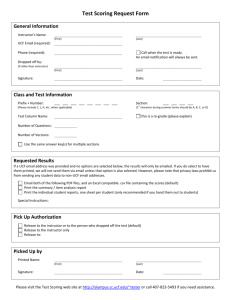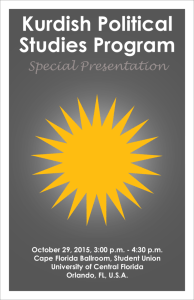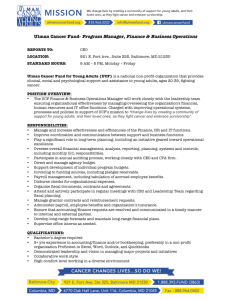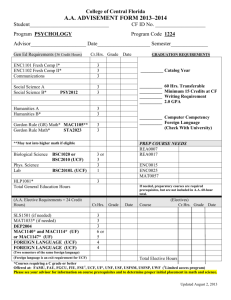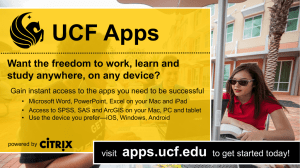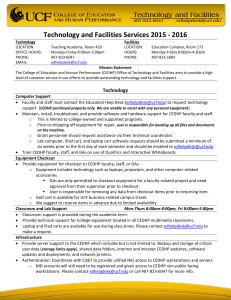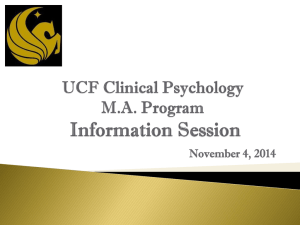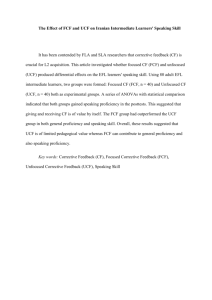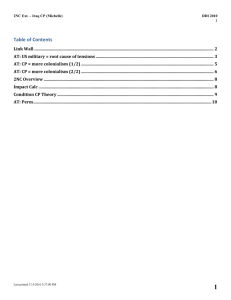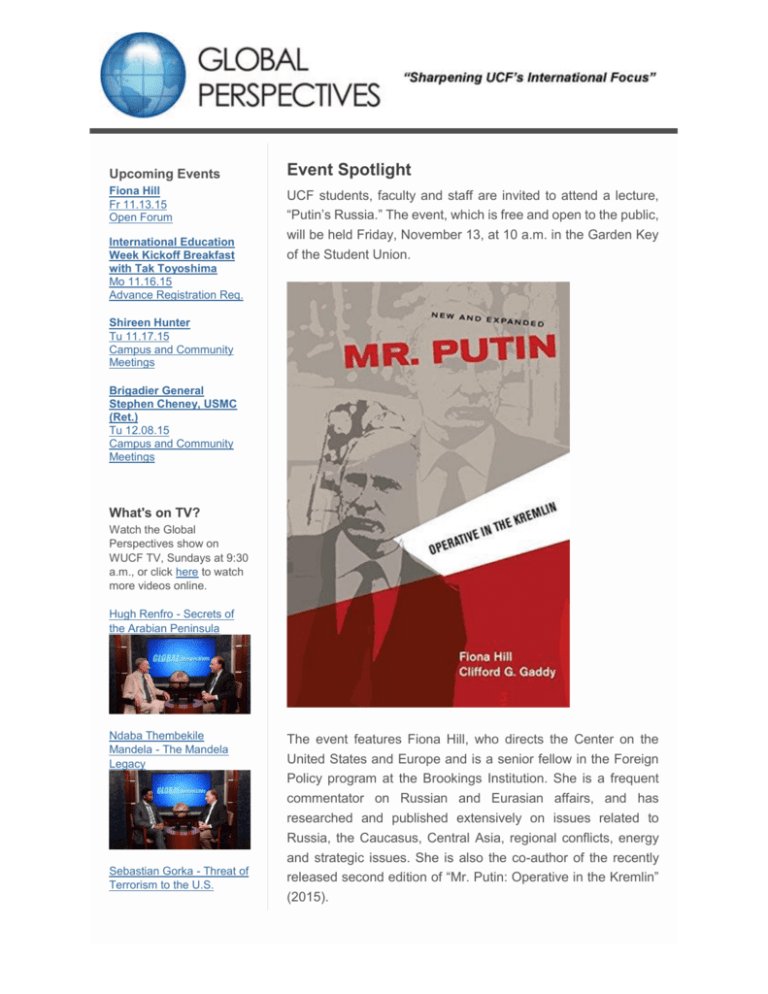
Upcoming Events
Event Spotlight
Fiona Hill
Fr 11.13.15
Open Forum
UCF students, faculty and staff are invited to attend a lecture,
“Putin’s Russia.” The event, which is free and open to the public,
will be held Friday, November 13, at 10 a.m. in the Garden Key
International Education
Week Kickoff Breakfast
with Tak Toyoshima
Mo 11.16.15
Advance Registration Req.
of the Student Union.
Shireen Hunter
Tu 11.17.15
Campus and Community
Meetings
Brigadier General
Stephen Cheney, USMC
(Ret.)
Tu 12.08.15
Campus and Community
Meetings
What's on TV?
Watch the Global
Perspectives show on
WUCF TV, Sundays at 9:30
a.m., or click here to watch
more videos online.
Hugh Renfro - Secrets of
the Arabian Peninsula
Ndaba Thembekile
Mandela - The Mandela
Legacy
Sebastian Gorka - Threat of
Terrorism to the U.S.
The event features Fiona Hill, who directs the Center on the
United States and Europe and is a senior fellow in the Foreign
Policy program at the Brookings Institution. She is a frequent
commentator on Russian and Eurasian affairs, and has
researched and published extensively on issues related to
Russia, the Caucasus, Central Asia, regional conflicts, energy
and strategic issues. She is also the co-author of the recently
released second edition of “Mr. Putin: Operative in the Kremlin”
(2015).
The event, organized by the UCF Global Perspectives Office, is
co-sponsored by the Office of the President. For more
information, please visit www.ucfglobalperspectives.org.
Call for Applications
Jim Davis - Superpowers in
the 21st Century
If you are interested in global issues and want to gain course
credit and experience, then you might consider applying for an
internship or fellowship with GP. The office is offering eight paid
fellowship positions and several internship positions for the
spring semester. Students from any major can apply. Some
fellowships even accept applications from other educational
institutions. In addition to providing research and office
assistance, interns and fellows help to facilitate the multiple
public events that GP organizes each semester. Every fellowship
program awards $500 for the semester with the exception of the
Lawrence J. Chastang Global Fellowship, which provides
$1,000, and the Francis Bok Human Trafficking Awareness
Fellowship, which provides $750. In addition to the eight GP
fellowships, the Prince Mohammad Bin Fahd Program for
Strategic Research and Studies also offers a fellowship with a
$500 award.
Internships require an applicant to have a minimum 3.0 GPA, to
be at least a Junior and to submit an application and resume by
December 4, 2015. Applicants for fellowships must also be a
Junior or higher and submit a resume and application, but must
also have a minimum 3.5 GPA, two letters of reference, a onepage personal statement, a 5-10 page writing sample and an
unofficial transcript. Interns and fellows are expected to have a
weekly time commitment of approximately 12 to 15 hours, with
10 hours dedicated to time in the office. To apply, or for more
information, students can go to the GP website or contact the
Intern Supervisor, Jessica Gagnon.
Inauguration was a first for UCF & USA
On Thursday, October 29, the UCF Kurdish Political Studies
Program (KPSP) held a special event to inaugurate the Jalal
Talabany Kurdish Political Studies Endowed Chair. In
attendance were over 75 people, including UCF students, faculty
and staff, as well as members of the KPSP advisory board.
Kerstin Hamann, Pegasus Professor, Chair of the Political
Science Department and Co-Chair of the KPSP made opening
remarks. College of Sciences Dean Michael Johnson
underscored the significance of the Chair and presented it to its
holder, Güneş Murat Tezcür. After trying out the chair for a series
of photos, Tezcür announced the winners of a recent essay
contest about the future of the Kurds and Kurdistan.
Shreya Labh, a political science major, won Best Undergraduate
Essay with her entry, “Quest for Kurdistan: Kurdish Autonomy in
Iraq, Syria and Turkey.” The undergraduate runner-up was
another political science student, Grayson Lanza, for his entry,
“The Kurdish People and the Middle East: The Saving Grace of
Western Hopes.” The third student recognized was the winner of
Best Graduate Essay, security studies doctoral student Peyman
Asadzade, for his essay, “Kurds in 2025.”
After honoring the award winners, Tezcür invited two members
of the KPSP advisory board, Najmaldin Karim, the Governor of
the Kirkuk Governorate in the Kurdistan Regional Government in
Iraq, and Gazi Zibari, the Director of WK Advanced Surgery
Center in Louisiana, to join him on stage for a panel discussion
on perspectives on Kurdish political issues. John C. Bersia,
Special Assistant to the President for Global Perspectives at
UCF, moderated the panel.
Bersia asked each panelist to speak about the importance of the
Kurds from their area of expertise. Karim addressed past and
current difficulties of the Kurds in Iraq, such as tensions with
Sunnis and Shiites and the ongoing struggles against the group
popularly known as the Islamic State (IS) – known among the
Kurds, according to Karim, as “Daesh.” Karim also discussed
recent troubles in Kurdistan, including an increased population
of over half a million displaced people for whom neither the
government in Baghdad nor the international community has
provided adequate aid. He lauded the efforts of the Peshmerga,
the military forces in Kurdistan, in their counter of IS, though
many have gone unpaid.
Zibari discussed the situation in Kurdistan from a medical aid
perspective. He proposed capacity building –training, teaching
and supporting people through international outreach– as a
method of tackling health problems in Kurdistan. Finally, Tezcür
underscored the challenges of the Kurds and the opportunities
they represent to the international community. He proposed a
few options for the Kurds in Iraq, Syria, Iran and Turkey such as
increasing cooperation between Kurds and the U.S.
During a question and answer session, Zibari asked Karim to
discuss the burden of refugees on the Kirkuk government
specifically. Karim explained that the additional population is
exhausting resources, and that the residents of Kirkuk are
opening their homes to the refugees. Speaking again to the lack
of assistance from the central government in Baghdad, Karim
remarked that “everybody is on their own.”
This event was hosted by the UCF Kurdish Political Studies
Program, with support from the UCF Global Perspectives Office,
UCF Political Science Department and UCF College of
Sciences. To download a copy of the event program, click here.
follow on Twitter | friend on Facebook
Copyright © 2015 UCF Global Perspectives Office, All rights reserved.
unsubscribe from this list | update subscription preferences

